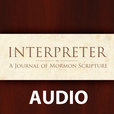
Summary: Historically there have been just three basic arguments against the authenticity of Joseph Smith’s first vision. They all begin with the a priori premise that such a vision simply could not have happened. The arguments originated with the Methodist minister to whom Joseph related his vision, author Fawn Brodie, and the Reverend Wesley Walters. The minister’s critique is explained by Methodism’s shift away from ecstatic religious experience. Fawn Brodie is shown to have made innovative yet flawed arguments within the narrow scope allowed by her conclusion that Joseph was a charlatan—a conclusion that did not allow for alternative interpretations of new evidence. Walters is shown to make fallacious arguments of irrelevant proof and negative proof in his understandably determined effort to undermine Joseph Smith’s credibility. Close-minded believers in Joseph’s vision are similarly likely to make unfounded assumptions unless they become open to the rich historical record Joseph created. Belief in the vision should correspond to Christian empathy for and civility toward critics.
